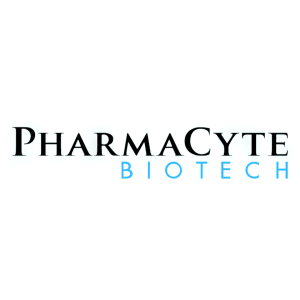PharmaCyte Biotech Begins DNA Sequence and Stability Studies in Response to FDA Requests for its Clinical Trial Product
PharmaCyte Biotech, Inc. (OTCQB: PMCB), a biotechnology company focused on developing cellular therapies for cancer and diabetes using its signature live-cell encapsulation technology, Cell-in-a-Box®, announced today that it has commenced additional studies to determine the exact sequence of the DNA encoding of the enzyme in the cells of its CypCaps® product for pancreatic cancer and the stability of the sequences, in line with the requests provided by the U.S. Food and Drug Administration (FDA).
The cell clone used to produce the CypCaps® product has been augmented to produce the cytochrome P450 enzyme. This enzyme converts ifosfamide from its inactive form to its cancer-killing form and is the basis for how CypCaps® works. PharmaCyte has already shown that the enzyme is produced, that the expression of the enzyme is stable over time and that the enzyme is functional. The FDA has now asked PharmaCyte to provide the exact DNA sequence and configuration of the genetic augmentation responsible for the production of cytochrome P450 in the cells. This requires additional studies that necessitates a multi-prong approach, including the employment of a new, state of the art, technique.
The information provided by these analyses will also strengthen and extend the already existing data that has been presented to the FDA by PharmaCyte on (i) the site of integration of the DNA encoding of the cytochrome P450 enzyme; and (ii) the data on the stability of the cells, even before they are encapsulated using the Cell-in-a-Box® to produce the CypCaps® product. Thus, these new studies will add to the data that PharmaCyte already has on the long-term stability and shelf life of the final CypCaps® product.
PharmaCyte’s Chief Executive Officer, Kenneth L. Waggoner, said, “Our team is pleased that we’ve commenced these additional studies and that we’re on a path to address more of the FDA’s comments regarding our treatment for locally advanced, inoperable pancreatic cancer (LAPC). As well as addressing the FDA’s comments, the information that will be created by these studies will bolster and augment our existing data on the stability of the cells used in the CypCaps® product. While the data generated will not change the fact that the CypCaps® product is functional, biologically active, and effective, it will generate further data on the exact configuration of the DNA that gives rise to the therapeutic effects of CypCaps®.”
To learn more about PharmaCyte’s pancreatic cancer treatment and how it works inside the body to treat locally advanced inoperable pancreatic cancer, we encourage you to watch the company’s documentary video complete with medical animations at: https://www.PharmaCyte.com/Cancer
About PharmaCyte Biotech
PharmaCyte Biotech, Inc. is a biotechnology company developing cellular therapies for cancer and diabetes based upon a proprietary cellulose-based live cell encapsulation technology known as “Cell-in-a-Box®.” This technology is being used as a platform upon which therapies for several types of cancer and diabetes are being developed.
PharmaCyte’s therapy for cancer involves encapsulating genetically engineered human cells that convert an inactive chemotherapy drug into its active or “cancer-killing” form. For pancreatic cancer, these encapsulated cells are implanted in the blood supply to the patient’s tumor as close as possible to the site of the tumor. Once implanted, a chemotherapy drug that is normally activated in the liver (ifosfamide) is given intravenously at one-third the normal dose. The ifosfamide is carried by the circulatory system to where the encapsulated cells have been implanted. When the ifosfamide flows through pores in the capsules, the live cells inside act as a “bio-artificial liver” and activate the chemotherapy drug at the site of the cancer. This “targeted chemotherapy” has proven effective and safe to use in past clinical trials and we believe results in little to no treatment related side effects.
PharmaCyte’s therapy for Type 1 diabetes and insulin-dependent Type 2 diabetes involves encapsulating a human liver cell line that has been genetically engineered to produce and release insulin in response to the levels of blood sugar in the human body. PharmaCyte is also considering the use of genetically modified stem cells to treat diabetes. The encapsulation of the cell lines will be done using the Cell-in-a-Box® technology. Once the encapsulated cells are implanted in a diabetic patient, we anticipate that they will function as a “bio-artificial pancreas” for purposes of insulin production.
Safe Harbor
This press release may contain forward-looking statements within the meaning of the Private Securities Litigation Reform Act of 1995 that express the current beliefs and expectations of the management of PharmaCyte. Any statements contained herein that do not describe historical facts are forward-looking statements that are subject to risks and uncertainties that could cause actual results, performance, and achievements to differ materially from those discussed in such forward-looking statements. Factors that could affect our actual results include our ability to raise the necessary capital to fund our operations and to find partners to supplement our capabilities and resources, our ability to satisfactorily address the issues raised by the FDA in order to have the clinical hold on our IND removed, as well as such other factors that are included in the periodic reports on Form 10-K and Form 10-Q that we file with the U.S. Securities and Exchange Commission. These forward-looking statements are made only as of the date hereof, and we undertake no obligation to update or revise the forward-looking statements, except as otherwise required by law, whether as a result of new information, future events or otherwise.
More information about PharmaCyte Biotech can be found at www.PharmaCyte.com. Information may also be obtained by contacting PharmaCyte’s Investor Relations Department.
View source version on businesswire.com: https://www.businesswire.com/news/home/20210126005424/en/







